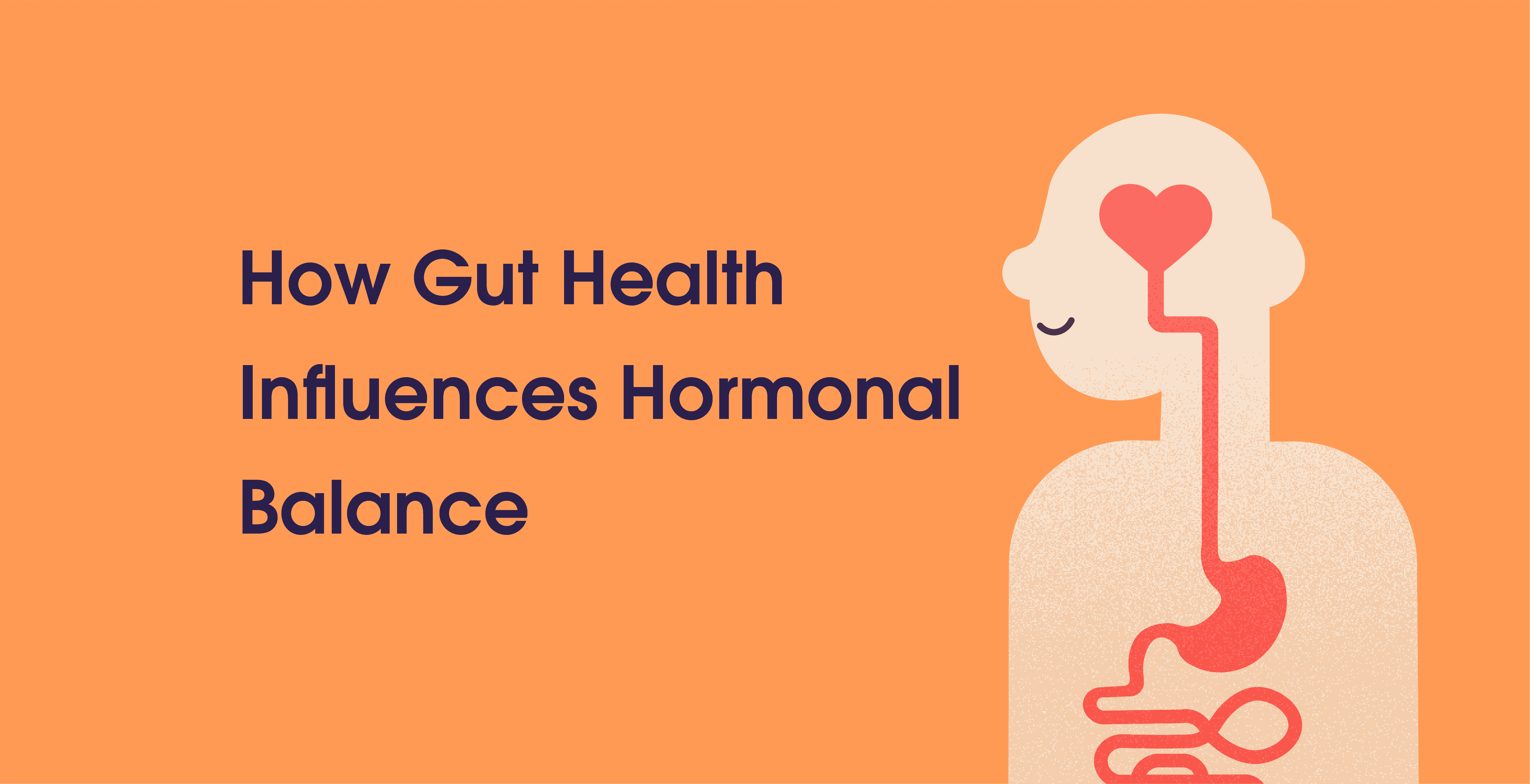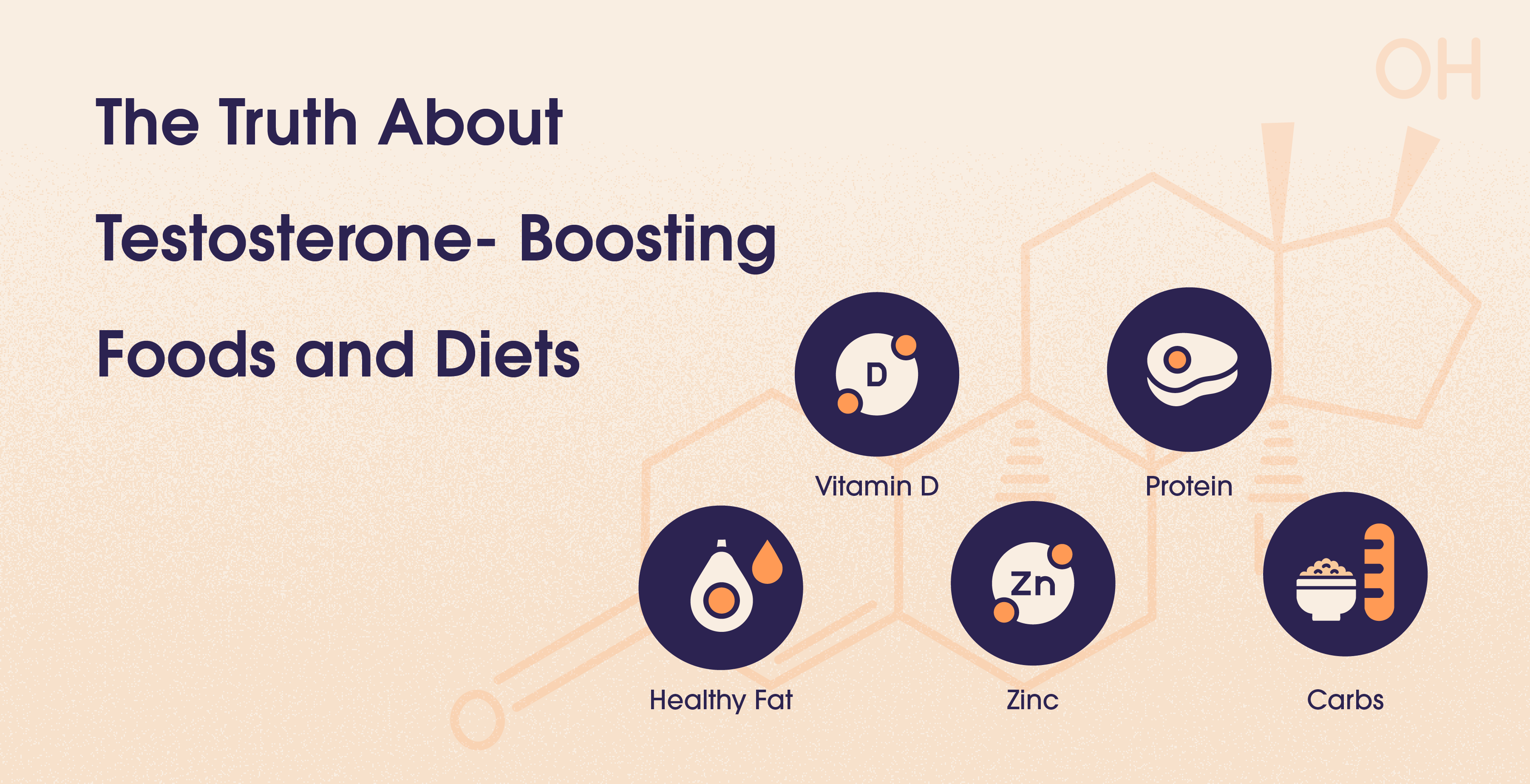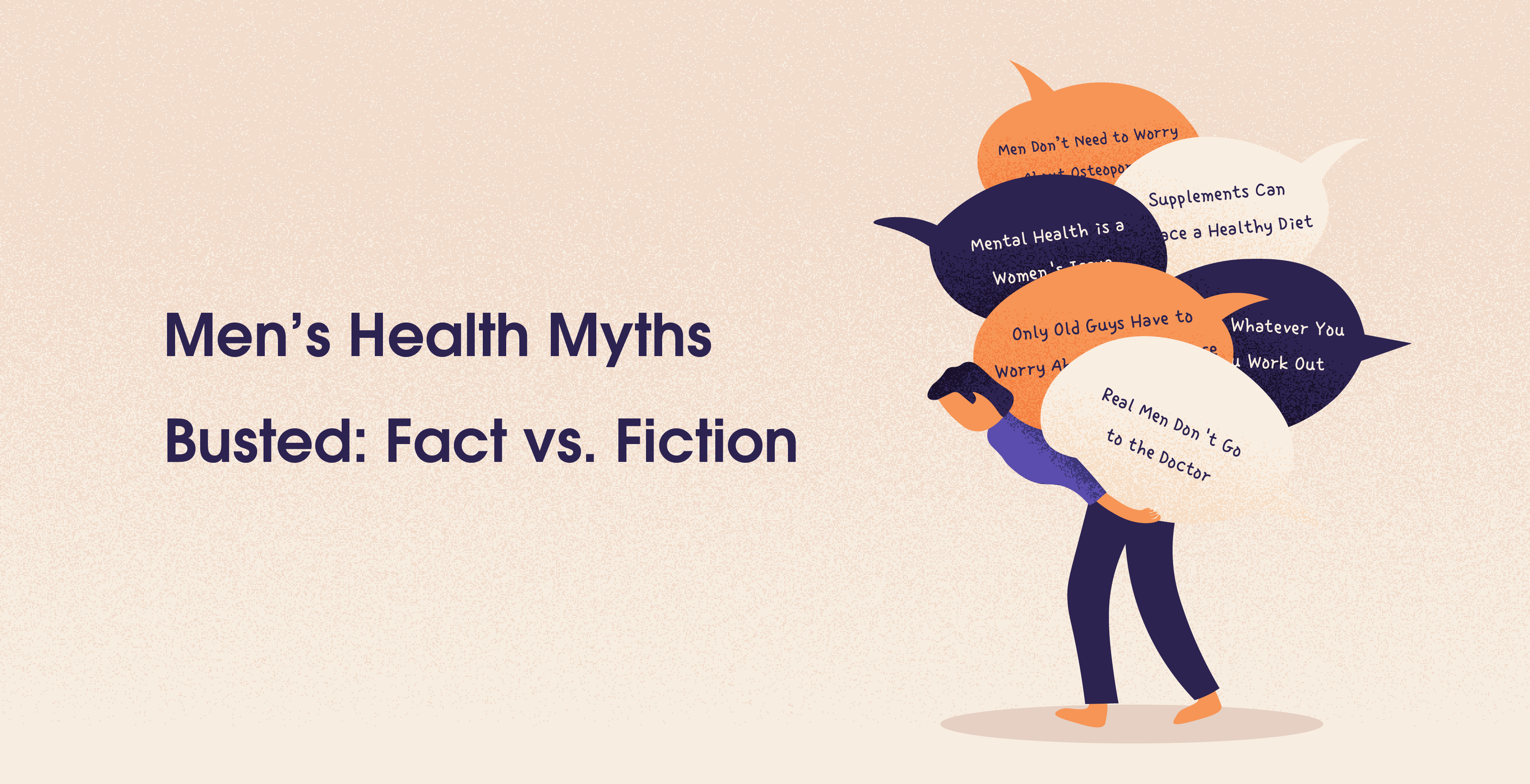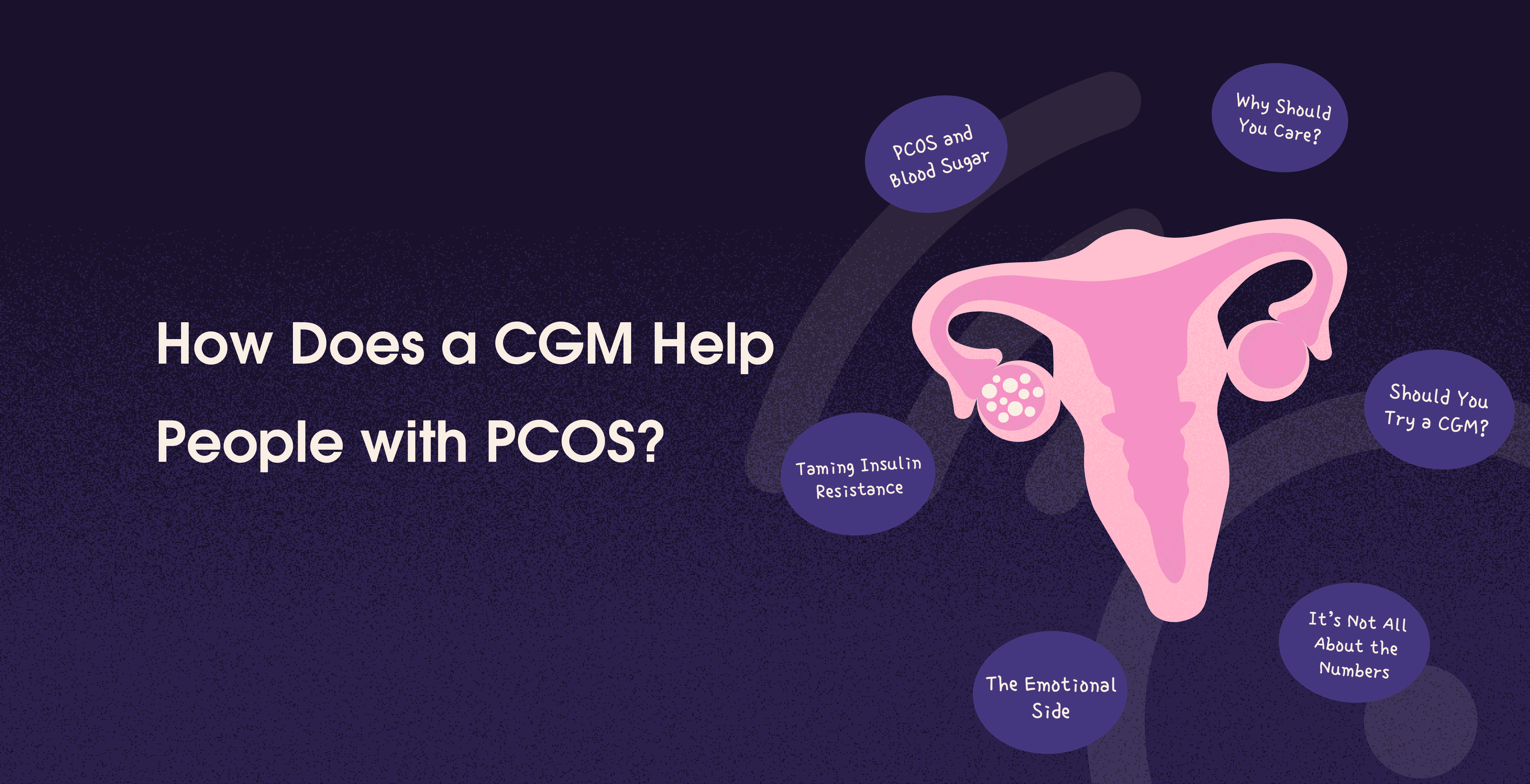How Gut Health Influences Hormonal Balance
Sep 6, 2024
Sayfali Rawlani



Table Of Contents
Have you ever wondered why we all say we have a gut feeling that things aren’t working out? It’s because our Gut is often referred to as the “second brain”.
It is not only responsible for digestion but plays a crucial role in our overall well-being, including affecting our hormone production.
Hormones are chemical messengers in the body that regulate many processes such as mood, metabolism, and reproduction.
Gut health and hormones are closely linked as they impact everything from energy levels to mental health. In this blog, we’ll explore how the state of our gut can influence hormonal balance.
Highlights
A balanced gut microbiome helps regulate hormone production and metabolism.
About 90% of serotonin, the "happy hormone," is produced in the gut.
Gut bacteria help balance estrogen levels, affecting menstrual cycles and reproductive health.
Gut health influences how the body responds to insulin, impacting blood sugar levels.
The gut and brain communicate directly, affecting mood and stress levels.
A fiber-rich diet and fermented foods promote a healthy gut and hormone balance.
Reducing stress supports gut health and maintains hormonal balance.
Quality sleep is vital for both gut health and hormone regulation.
Drinking enough water helps maintain gut function and hormonal balance.
The Gut Microbiome
Trillions of bacteria and other microbes inhabit the digestive tract, forming the gut microbiome. These microbes digest food, absorb nutrients, and even produce vitamins like Vitamin K, water-soluble vitamin B, and vitamin A. More importantly, they aid in hormone regulation by creating and breaking down specific hormones while also boosting the body's ability to metabolize them.
When the gut is healthy, it maintains an extensive and balanced bacterial community, facilitating appropriate hormone production and metabolism. However, when the gut is unhealthy due to a poor diet, stress, antibiotics, or other causes, the balance of good and bad bacteria is disrupted. This imbalance, known as dysbiosis, can cause hormonal issues such as mood swings, lethargy, and even polycystic ovarian syndrome (PCOS) or thyroid diseases.
Gut Health and the Production of Hormones
Gut health plays a major role in the production of several hormones in your body such as serotonin, estrogen, and insulin. Let’s learn about them in depth:
Serotonin
Also known as the “happy hormones” is the neurotransmitter that synchronizes mood, appetite, and sleep. About 90% of serotonin is produced in the gut, not in your brain.
A healthy gut microbiome helps ensure adequate production of serotonin, it can positively impact your mood and emotional well-being. Conversely, if your gut health is not good, it can directly reduce serotonin levels and because of that, you will start feeling anxious and depressed.
Estrogen
The stomach also influences estrogen metabolism, which is important for our reproductive health. Certain gut bacteria are involved in a process known as "estrobolome," which helps control estrogen levels in the body.
An imbalance in the microbes in the gut can disrupt this process, resulting in either too much or too little estrogen in the body. This can lead to irregular menstruation cycles, emotional swings, and an increased risk of diseases including breast cancer and endometriosis.
Insulin
Insulin regulates blood sugar levels. Recent research suggests that gut bacteria influence how your body responds to insulin. When the gut is healthy, it can assist in regulating blood sugar levels. However, an unhealthy gut can contribute to insulin resistance, which raises the risk of type 2 diabetes and other metabolic problems.
The Connection Between Gut & Brain
The gut and brain are in constant communication via a network known as the gut-brain axis. This link implies that alterations in the gut might directly impact the brain and vice versa. For example, when the gut is inflamed or unbalanced, it can transmit messages to the brain that influence mood, stress response, and even cognition.
likewise, stress and anxiety can have a severe impact on gut health, resulting in a vicious cycle in which poor gut health and hormone imbalances exacerbate each other. This association is most evident in disorders such as Irritable Bowel Syndrome (IBS) when stress and anxiety exacerbate gastrointestinal troubles and disrupt hormone balance.
The Role of Diet and Lifestyle in Gut Health and Hormonal Balance
To maintain both gut health and hormonal balance, adopting a healthy diet and lifestyle is essential. Here are some tips to keep your gut and hormones happy:
Eat a Fiber-Rich Diet: Fiber feeds the good bacteria in the gut, promoting a diverse and balanced microbiome. Foods like fruits, vegetables, whole grains, and legumes are excellent sources of fiber.
Include Fermented Foods: Fermented foods like yogurt, kefir, sauerkraut, and kimchi are rich in probiotics, which are beneficial bacteria that support gut health. Probiotics help maintain a healthy balance of gut bacteria, which is crucial for hormone production and metabolism.
Stay Hydrated: Drinking plenty of water is essential for digestion and helps maintain a healthy gut lining. A well-hydrated body is better equipped to regulate hormones and eliminate toxins that can disrupt hormonal balance.
Manage Stress: Chronic stress can negatively impact gut health and hormonal balance. Practicing stress-reducing techniques like meditation, yoga, deep breathing exercises, or spending time in nature can help support healthy gut and hormone levels.
Get Enough Sleep: Poor sleep quality can disrupt both gut health and hormone production. Aim for 7-9 hours of quality sleep each night to support overall well-being.
Limit Antibiotic Use: While antibiotics are sometimes necessary, they can disrupt the balance of gut bacteria. If you need to take antibiotics, consider taking a probiotic supplement to help restore your gut microbiome afterward.
Signs That Your Gut Health May Be Affecting Your Hormones
If you’re wondering whether your gut health is influencing your hormones, here are some common signs to look out for:
Digestive Issues: Bloating, gas, constipation, or diarrhea can indicate an imbalance in the gut microbiome, which may be affecting hormone production.
Mood Swings and Anxiety: Since a significant amount of serotonin is produced in the gut, mood disturbances may be linked to gut health issues.
Irregular Menstrual Cycles: Hormonal imbalances, such as those involving estrogen, can be linked to gut health problems.
Skin Problems: Conditions like acne or eczema can sometimes be traced back to gut health issues that influence hormones like estrogen and insulin.
In The End
Gut health plays a significant role in maintaining hormonal balance. A healthy gut supports the production and metabolism of hormones like serotonin, estrogen, and insulin, while an unhealthy gut can lead to various hormone-related problems. By focusing on a gut-friendly diet and lifestyle, we can promote better hormonal balance and overall health. Remember, taking care of your gut is not just about digestion; it’s about nurturing the very foundation of your well-being.
If you suspect that your gut health might be affecting your hormones, consider consulting a healthcare professional who can guide you toward a personalized plan for optimal health.
Reference
Have you ever wondered why we all say we have a gut feeling that things aren’t working out? It’s because our Gut is often referred to as the “second brain”.
It is not only responsible for digestion but plays a crucial role in our overall well-being, including affecting our hormone production.
Hormones are chemical messengers in the body that regulate many processes such as mood, metabolism, and reproduction.
Gut health and hormones are closely linked as they impact everything from energy levels to mental health. In this blog, we’ll explore how the state of our gut can influence hormonal balance.
Highlights
A balanced gut microbiome helps regulate hormone production and metabolism.
About 90% of serotonin, the "happy hormone," is produced in the gut.
Gut bacteria help balance estrogen levels, affecting menstrual cycles and reproductive health.
Gut health influences how the body responds to insulin, impacting blood sugar levels.
The gut and brain communicate directly, affecting mood and stress levels.
A fiber-rich diet and fermented foods promote a healthy gut and hormone balance.
Reducing stress supports gut health and maintains hormonal balance.
Quality sleep is vital for both gut health and hormone regulation.
Drinking enough water helps maintain gut function and hormonal balance.
The Gut Microbiome
Trillions of bacteria and other microbes inhabit the digestive tract, forming the gut microbiome. These microbes digest food, absorb nutrients, and even produce vitamins like Vitamin K, water-soluble vitamin B, and vitamin A. More importantly, they aid in hormone regulation by creating and breaking down specific hormones while also boosting the body's ability to metabolize them.
When the gut is healthy, it maintains an extensive and balanced bacterial community, facilitating appropriate hormone production and metabolism. However, when the gut is unhealthy due to a poor diet, stress, antibiotics, or other causes, the balance of good and bad bacteria is disrupted. This imbalance, known as dysbiosis, can cause hormonal issues such as mood swings, lethargy, and even polycystic ovarian syndrome (PCOS) or thyroid diseases.
Gut Health and the Production of Hormones
Gut health plays a major role in the production of several hormones in your body such as serotonin, estrogen, and insulin. Let’s learn about them in depth:
Serotonin
Also known as the “happy hormones” is the neurotransmitter that synchronizes mood, appetite, and sleep. About 90% of serotonin is produced in the gut, not in your brain.
A healthy gut microbiome helps ensure adequate production of serotonin, it can positively impact your mood and emotional well-being. Conversely, if your gut health is not good, it can directly reduce serotonin levels and because of that, you will start feeling anxious and depressed.
Estrogen
The stomach also influences estrogen metabolism, which is important for our reproductive health. Certain gut bacteria are involved in a process known as "estrobolome," which helps control estrogen levels in the body.
An imbalance in the microbes in the gut can disrupt this process, resulting in either too much or too little estrogen in the body. This can lead to irregular menstruation cycles, emotional swings, and an increased risk of diseases including breast cancer and endometriosis.
Insulin
Insulin regulates blood sugar levels. Recent research suggests that gut bacteria influence how your body responds to insulin. When the gut is healthy, it can assist in regulating blood sugar levels. However, an unhealthy gut can contribute to insulin resistance, which raises the risk of type 2 diabetes and other metabolic problems.
The Connection Between Gut & Brain
The gut and brain are in constant communication via a network known as the gut-brain axis. This link implies that alterations in the gut might directly impact the brain and vice versa. For example, when the gut is inflamed or unbalanced, it can transmit messages to the brain that influence mood, stress response, and even cognition.
likewise, stress and anxiety can have a severe impact on gut health, resulting in a vicious cycle in which poor gut health and hormone imbalances exacerbate each other. This association is most evident in disorders such as Irritable Bowel Syndrome (IBS) when stress and anxiety exacerbate gastrointestinal troubles and disrupt hormone balance.
The Role of Diet and Lifestyle in Gut Health and Hormonal Balance
To maintain both gut health and hormonal balance, adopting a healthy diet and lifestyle is essential. Here are some tips to keep your gut and hormones happy:
Eat a Fiber-Rich Diet: Fiber feeds the good bacteria in the gut, promoting a diverse and balanced microbiome. Foods like fruits, vegetables, whole grains, and legumes are excellent sources of fiber.
Include Fermented Foods: Fermented foods like yogurt, kefir, sauerkraut, and kimchi are rich in probiotics, which are beneficial bacteria that support gut health. Probiotics help maintain a healthy balance of gut bacteria, which is crucial for hormone production and metabolism.
Stay Hydrated: Drinking plenty of water is essential for digestion and helps maintain a healthy gut lining. A well-hydrated body is better equipped to regulate hormones and eliminate toxins that can disrupt hormonal balance.
Manage Stress: Chronic stress can negatively impact gut health and hormonal balance. Practicing stress-reducing techniques like meditation, yoga, deep breathing exercises, or spending time in nature can help support healthy gut and hormone levels.
Get Enough Sleep: Poor sleep quality can disrupt both gut health and hormone production. Aim for 7-9 hours of quality sleep each night to support overall well-being.
Limit Antibiotic Use: While antibiotics are sometimes necessary, they can disrupt the balance of gut bacteria. If you need to take antibiotics, consider taking a probiotic supplement to help restore your gut microbiome afterward.
Signs That Your Gut Health May Be Affecting Your Hormones
If you’re wondering whether your gut health is influencing your hormones, here are some common signs to look out for:
Digestive Issues: Bloating, gas, constipation, or diarrhea can indicate an imbalance in the gut microbiome, which may be affecting hormone production.
Mood Swings and Anxiety: Since a significant amount of serotonin is produced in the gut, mood disturbances may be linked to gut health issues.
Irregular Menstrual Cycles: Hormonal imbalances, such as those involving estrogen, can be linked to gut health problems.
Skin Problems: Conditions like acne or eczema can sometimes be traced back to gut health issues that influence hormones like estrogen and insulin.
In The End
Gut health plays a significant role in maintaining hormonal balance. A healthy gut supports the production and metabolism of hormones like serotonin, estrogen, and insulin, while an unhealthy gut can lead to various hormone-related problems. By focusing on a gut-friendly diet and lifestyle, we can promote better hormonal balance and overall health. Remember, taking care of your gut is not just about digestion; it’s about nurturing the very foundation of your well-being.
If you suspect that your gut health might be affecting your hormones, consider consulting a healthcare professional who can guide you toward a personalized plan for optimal health.
Reference
Table Of Contents
Table Of Contents
Table Of Contents
Read More


Mar 13, 2025
Sayfali Rawlani


Feb 25, 2025
Sayfali Rawlani


Feb 19, 2025
Sayfali Rawlani



Company
Copyright © 2025 trst health. All right reserved.

